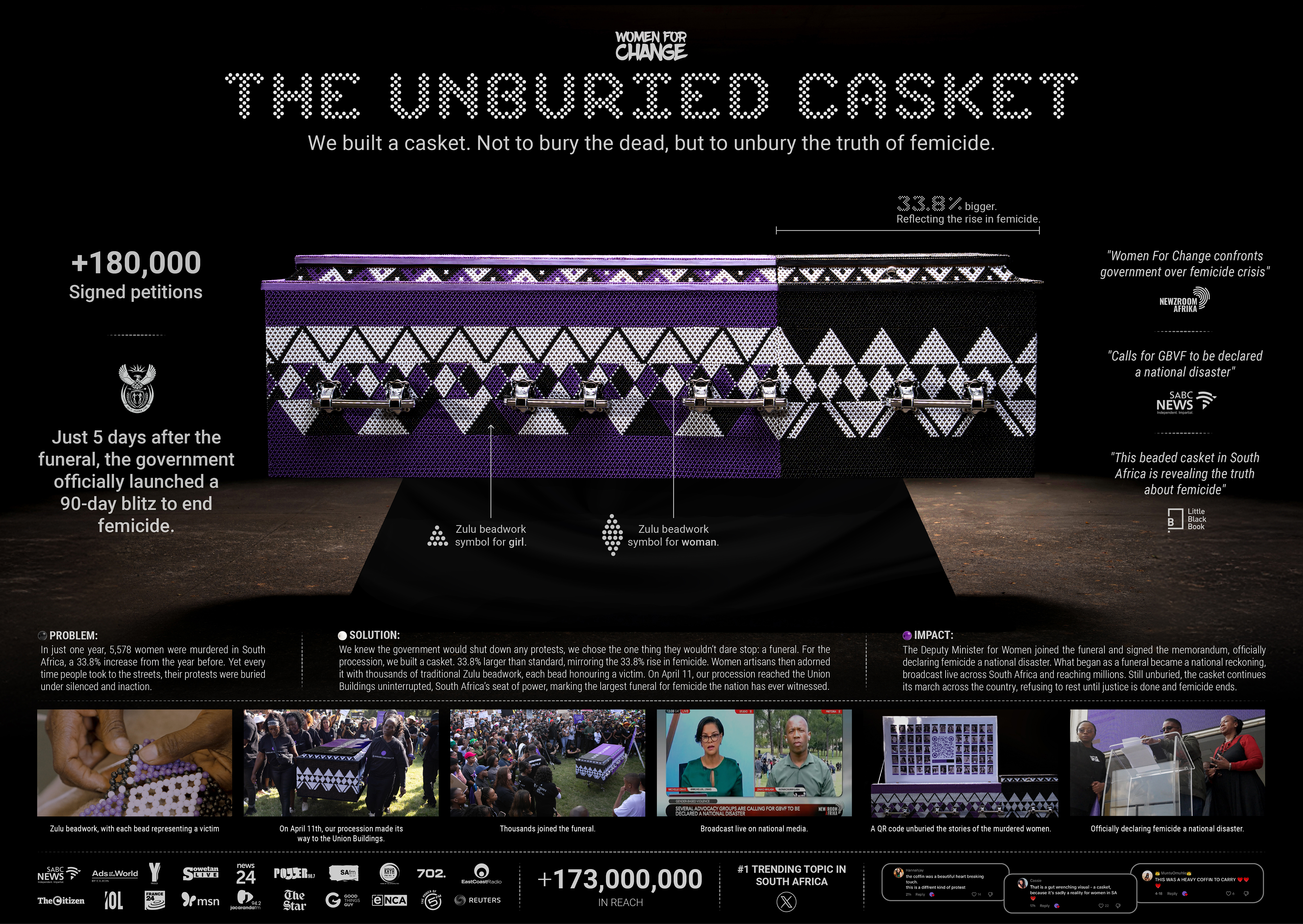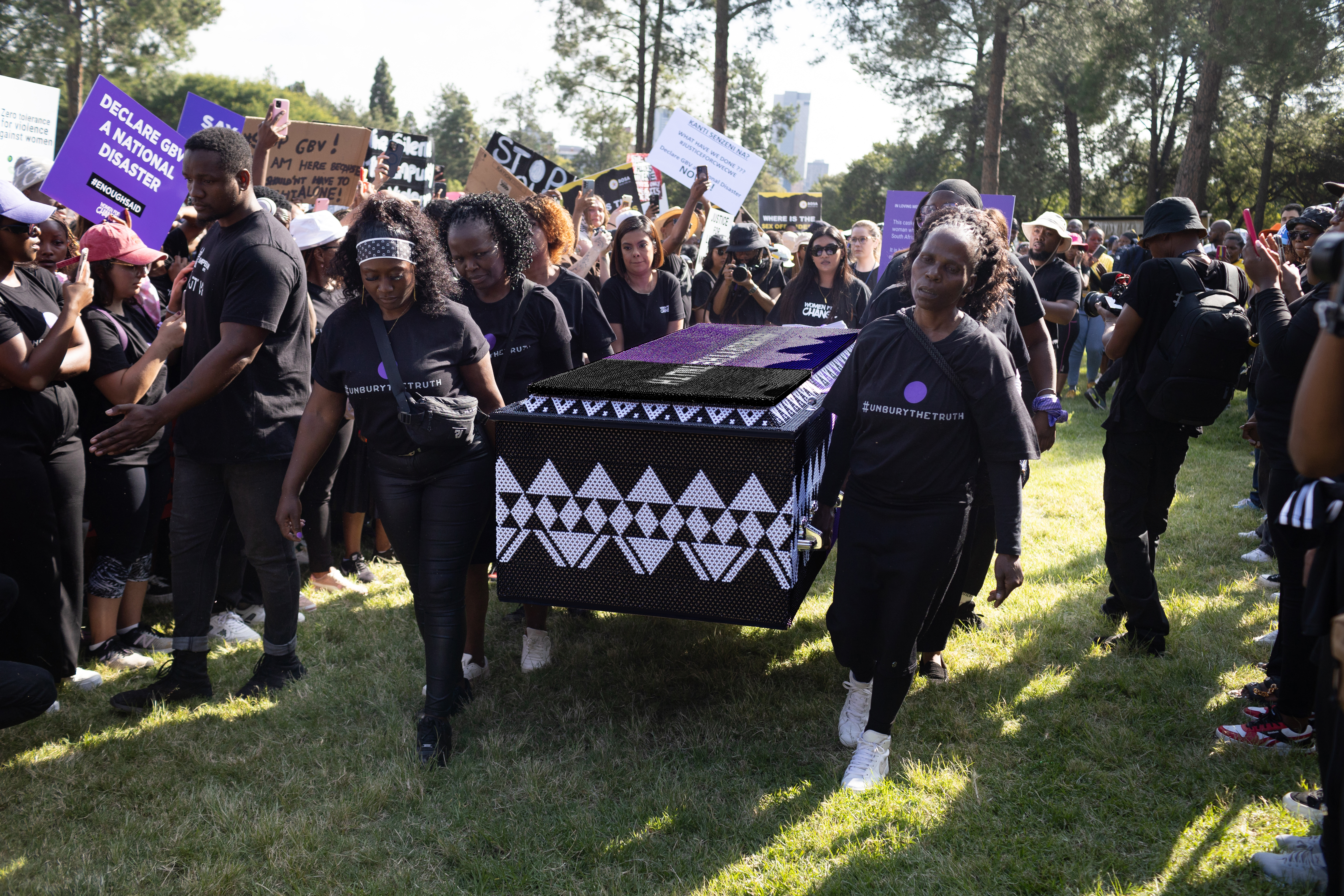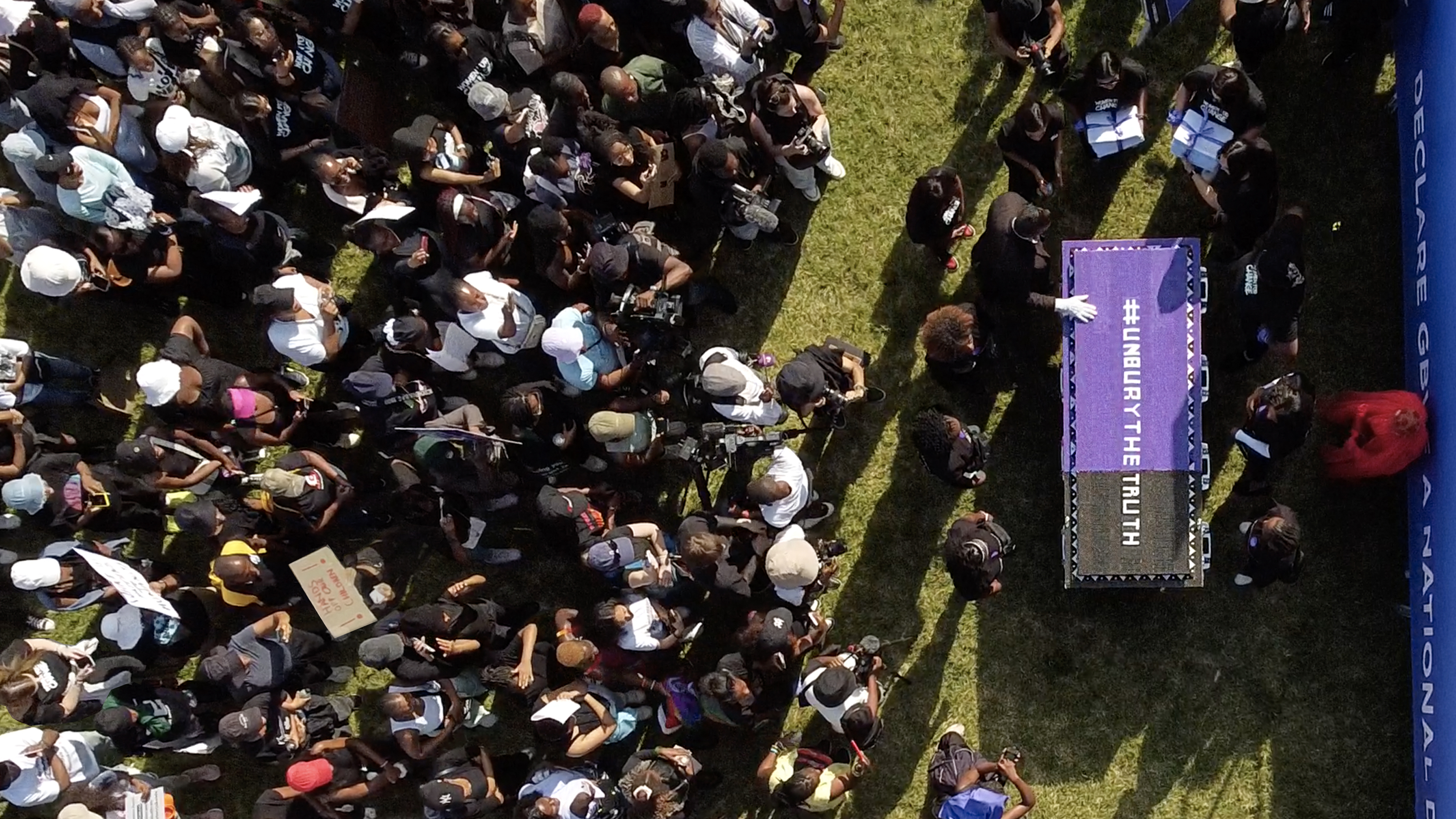
In the last year 5,578 women were murdered in South Africa—a 33.8% increase in femicide from the previous year, in an ever-growing crisis.
The government had so far responded with silence and inaction.
Women For Change is a South African non-profit, focused on raising awareness and driving action against gender-based violence and femicide (GBVF). A demonstration was to be held at the seat of Government, the Union Buildings in Pretoria, on 11 April 2025, aiming to pressure the government into declaring femicide a national disaster.
We needed to make the scale of the crisis tangible, highlight the lack of government response, and create an emotive response to mobilise support for urgent and sustained policy reform.
So we built something they couldn’t ignore, The Unburied Casket, 33.8% larger than a standard casket and a symbol of the truth they have tried to bury.
The casket was shrouded with traditional Zulu bead work, each hand-stitched to represent a life lost.
A funeral procession delivered the casket to the seat of South Africa’s government in Pretoria. There, in front of thousands of protestors and broadcast live on national television, it was opened. Within it, the faces of dozens of victims with their names and stories no longer buried, the signatures of over 180,000 South Africans, and a memorandum demanding action. With the country watching, the memorandum was signed. Today, The Unburied Casket continues to travel the country until femicide is treated like the national emergency it is.
South Africa has among the highest recorded femicide rates in the world, with women murdered at five times the global average—most by men they know.
The crisis is not new. In 2018, the South African government declared GBVF a national emergency. In 2019, it convened a special joint sitting of Parliament. In 2020, it launched the National Strategic Plan on GBV and Femicide. But in the years since, funding has stalled, implementation has faltered, and the crisis has worsened. The government’s words have not translated into action and women continue to die.
Our strategy focused on three key audiences: government decision makers, active civil society participants, and a broader public disengaged from the GBVF crisis.
With femicide dominating media coverage year after year, public attention has dulled—and government response has remained inconsistent and slow. Our objective was to compel action from those with the power to make systemic change. The demonstration at the Union Buildings provided a critical opportunity to confront leaders directly.
In South African culture, death is not hidden. Funeral processions are followed through the streets to honour the fallen. In Zulu culture, beads are traditionally used and worn in a celebratory manner, like at weddings and coming-of-age ceremonies. They are also a craft of love, as seen in the way the famous Zulu letter is written. We drew from this, knowing how each colour and shape tells a story, and created this casket. What was once a beautiful symbol of culture and celebration has been reimagined and turned into one of mourning.
The casket was designed and produced 33.8% larger than the standard, to reflect the 33.8% rise in femicide. This was then covered in a beadwork shroud of black, white and purple beads. Each of the 5,578 purple beads representing a woman murdered in the past year.
It embodied the rising femicide rate in physical form. It turned data into impact, and mourning into a unified demand for political accountability.
The interior was lined with images of victims and a QR code linking to an interactive website which allowed the public to explore content on the crisis and features the biographies of dozens of murdered women. A printed memorandum and 150,000 petition signatures were also placed inside the casket, demanding femicide be declared a national disaster.
The casket was then processioned in a Funeral March through the streets of Pretoria to the Union Buildings, the seat of Government in South Africa, a symbolic act of refusal to let the crisis remain buried.
We launched a purple-avatar social media campaign to build solidarity and participation online.
Secured national media coverage, including live broadcast of the protest and post-event amplification.
To date, 180,000+ people signed the petition demanding that femicide be declared a national disaster—one of the largest public responses to a GBVF campaign in recent years.
On the day of the protest the memorandum to declare femicide a national emergency in South Africa signed by the Deputy Minister for Women and less than a week later the government announced a 90 day blitz on femicide and gender based violence.
The campaign sparked national and global attention, reaching over 173 million people, generating more than 890 pieces of media coverage.
It became the No. 1 trending topic on X in South Africa, amplifying public pressure on government leaders to act.
With a return on investment of more than 75:1, the campaign proved that powerful, culturally resonant protest can not only cut through media fatigue but also mobilise widespread support and drive political urgency on one of the country’s most persistent and devastating crises.


